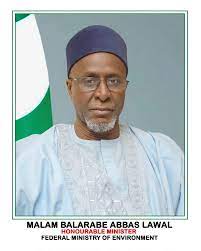
FAO and Angola’s Ministry of Environment Successfully Conclude the Transformative ZAEC Project
The Food and Agriculture Organization of the United Nations (FAO), in partnership with Angola’s Ministry of Environment (MINAMB), has completed the groundbreaking Sustainable Land Management Project, widely known as the ZAEC Project (Agroecological and Conservation Zones). This ambitious initiative, designed to combat land degradation and promote environmental sustainability, has delivered transformative results across southwestern Angola.
Restoring Degraded Land and Empowering Communities
Funded by the Global Environment Facility (GEF), the ZAEC Project successfully restored 1,831 hectares of degraded land in Huambo and Benguela provinces through advanced agroforestry practices. Beyond environmental restoration, the project prioritized capacity building, equipping 732 stakeholders—60% of whom were women—with vital agroecological skills. This strong focus on gender inclusivity reflects the project’s commitment to sustainable development principles.
Speaking at the project’s closing ceremony, Anastacio Goncalves, Assistant to the FAO Country Representative in Angola, emphasized the initiative’s profound impact:
“This project has not only contributed to FAO’s strategic framework but also fostered sustainable land-use planning and empowered local communities, enhancing resilience in some of Angola’s most vulnerable landscapes.”
Pioneering Innovations for Sustainability
The ZAEC Project introduced innovative approaches that set a benchmark for environmental interventions in Angola. By combining advanced land management techniques with active community participation, the project enhanced land productivity, strengthened climate resilience, and improved livelihoods for 4,808 farmers, indirectly benefiting over 1.5 million people in the region.
A key achievement was the establishment of the Agroecological Zoning (AEZ) Unit at the Centro de Ecologia Tropical e Alterações Climáticas (CETAC). This unit now manages 358,841 hectares of land using a WebGIS Decision Support System, a cutting-edge tool for sustainable land-use planning and resource management.
A Lasting Legacy of Environmental Transformation
In January 2025, a fact-finding mission to Alto-Hama, Chipipa, and Chongoroi provided a first-hand look at the project’s tangible outcomes, from restored landscapes to meticulously developed land management plans.
As the ZAEC Project concludes, it leaves behind a robust framework for continued progress in sustainable land management. By institutionalizing its successes, Angola is positioned to sustain the momentum, aligning closely with the United Nations Sustainable Development Goals (SDGs) to build a brighter, greener future.
Advancing Angola’s Environmental and Socio-Economic Growth
The ZAEC Project exemplifies the power of collaborative action in tackling land degradation, advancing gender equality, and fostering socio-economic growth. Its legacy serves as a beacon of hope for Angola’s communities and ecosystems, paving the way for a sustainable future.








